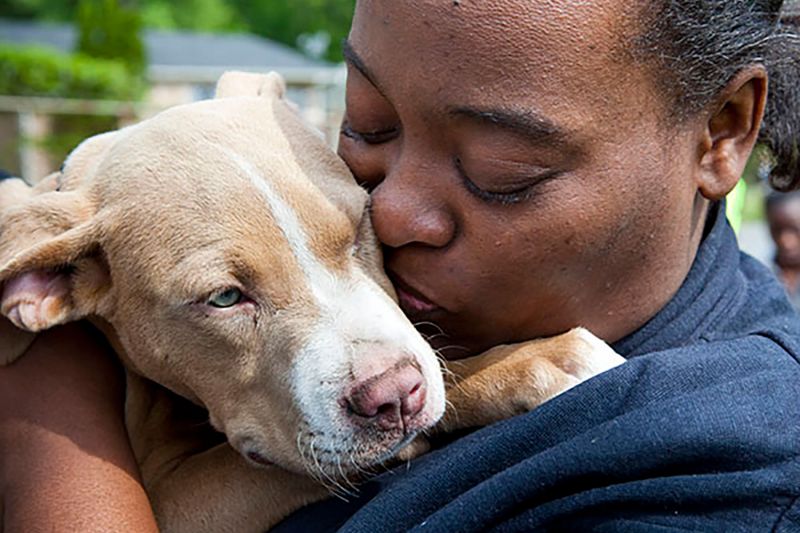Promoting social justice through spay/neuter
To improve your services, dive into your community’s issues
February 27, 2018

On this World Spay Day 2018, let’s talk about creating a culture of inclusivity and understanding within your spay/neuter programs.
With an estimated 90 million dogs and 94 million cats in 85 million American households, love of pets is a shared social value that transcends geographical, racial, religious and socioeconomic boundaries. However, access to pet care information and services does not, resulting in hardship and heartache for many pet owners. The extreme lack of access to pet resources for millions of people is an overlooked national crisis and a social justice issue in its own right.
There are many changes your shelter can make that may seem small but actually have big results. You can extend service hours on evenings and weekends to help with availability for people with multiple jobs or people who can’t afford to take off work. You can have bilingual staff or volunteers at the ready, recognizing that many loving pet owners don’t speak English and might feel uncomfortable inquiring about services. Or you can simply focus on strong customer service through positive interactions, which fosters a welcoming vibe for people who may be nervous and intimidated because they don’t have experience in a veterinary clinic setting.
The most useful thing you can do, however, comes at no financial or human resource cost. Simply put: Dig deeper to learn more about the larger systems of poverty and prejudice and how both people and their pets are impacted. Animal welfare hasn’t traditionally connected with advocates and organizations working on issues of institutional discrimination and inequity. But when we realize that caring about pets means caring about people, the intersections become obvious and plentiful.
What if you attend a local meeting with elected officials on the issue of affordable housing to better comprehend how many people in your community are affected by housing instability and inconsistent tenant rights for renting pet owners? Not only would you learn more about your neighbors, but you could insert the need for truly pet-friendly housing options into the conversation or offer to be a resource to others working on this issue.
Or what if you listen to groups focusing on incarceration and the cash bond system? Could that better inform you on how some families in your community, including the four-legged members, become fragmented and how you can keep those families together?
You can even take a more passive approach (which I completely understand is much easier for some!) and add to your reading list books like The New Jim Crow by Michelle Alexander, The Color of Law by Richard Rothstein, Evicted by Matthew Desmond or Between the World and Me by Ta-Nehisi Coates to obtain a historical perspective on why your community is structured the way it is today and what systemic challenges people continue to face.
While at first glance these activities may not seem like they matter to your spay/neuter program, I am confident both you and your work will be positively affected with every person you meet, question you ask and story you hear.
Humane World for Animals Pets for Life (PFL) program focuses on connecting people and pets in underserved areas with services, supplies and information. It has been working for years to overcome long-held misconceptions that people in low-income communities or communities of color are opposed to spaying and neutering. So we were very excited when the Institute for Human-Animal Connection at the University of Denver conducted a retroactive analysis of PFL data collected from tens of thousands of people and pets around the country.
The resulting study, published a few months ago in the Journal of Applied Animal Welfare Science, concluded that race and ethnicity are not primary determinants in utilizing veterinary services. When the PFL approach—offering free spay/neuter services through positive engagement combined with transportation to and from veterinary appointments when needed—is employed, decision-making around spay/neuter by pet owners who are Latino or African-American is consistent with that of non-Hispanic white pet owners. This shows that high percentages of unaltered pets in some neighborhoods are due to lack of access and not because of differing belief systems or how much people care for their pets. In fact, in PFL markets, almost 90 percent of unaltered pets, on average, are subsequently spayed or neutered through the program.
Animals are a reminder of how much more alike than different we all are, and they provide us with an amazing opportunity to connect and understand each other. How meaningful that through spay/neuter we can work to create more equity. How inspiring that by shining a light on and honoring the love people have for their pets, we can bring awareness in a new way to larger system imbalances.
The work of PFL isn’t just about animal welfare; it’s about social justice. We are fighting every day against institutional discrimination and systemic inequity. As Bayard Rustin, the great civil rights activist, once said, “The proof that one truly believes is in action.” It will take all of us to create a more just and humane world, and you can start tomorrow with how you offer and deliver spay/neuter services.
Humane World for Animals Pets for Life program is grateful to the Doris Day Animal Foundation for supporting our work and allowing us to provide spay/neuter services to so many people and pets in honor of World Spay Day.
This blog is dedicated to JC Ramos, who meant so much to the Pets for Life program. He not only inspired PFL to do more in the fight against injustice and discrimination, but he served his community with extreme dedication and compassion. There will never be another person like JC, and the PFL team was lucky to call him family.

